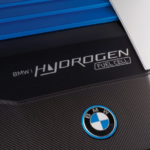It seems like Electric Vehicle (EV) segment has become the new tech market for all types of investors. Besides venture capitalists (VCs), many corporate venture entities of Fortune 500 companies stepped in last year.
In 2019, old mastodons like Intel, Airbus, Samsung, Goldman Sachs, Alliance, and Accel entered the e-mobility space as financial investors. And “beloved tech companies” like Google, Baidu, Tencent, and many others have become strategic EV investors themselves.

EVBoosters, a Dutch-based e-mobility market and investment research firm estimated, in cooperation with analyst company Venture IQ, that a total of 240 companies raised up to $17 billion in 2019.
A total of $11.9 billion was raised based on 164 traceable transactions, with an average value per transaction of $72 million. 76 companies didn’t disclose any financial details. Based on these numbers, electric vehicle market experts projected that all EV-related companies raised a total of $15 billion, or up to $17 billion.
The most active scaleup in 2019 is without any doubt Rivian, this year collecting a total of $2.9 billion. Production will start later in 2020, with deliveries in 2021.
Another recurring name is Bird, the electric scooter rental company. In Q4 it raised another $275 million, and in Q1 it will be present as the buyer of German rival Circ while also raising $75 million in extra pocket money. Bird is facing the double challenge of growing fast while increasing efficiency.
The rising star this quarter is Sono Motors. The goals of the company (affordable and sustainable) came into conflict with the goals of its investors (fast growth and profit maximization). To resolve this situation, Sono Motors switched to a crowdfunding model.
The key enabling technologies for the adoption of e-mobility are batteries and charging infrastructure. The most frequent problem for EV makers is “No Batteries.”
They did not order in time, did not order enough, or did not order from a battery maker that could scale production when demand was higher than anticipated.
In some cases, suppliers even accepted orders for more batteries than it could produce. Seeing EV manufacturers investing in battery makers will improve that situation.
Reference- Global e-Mobility Funding Report, Clean Technica








